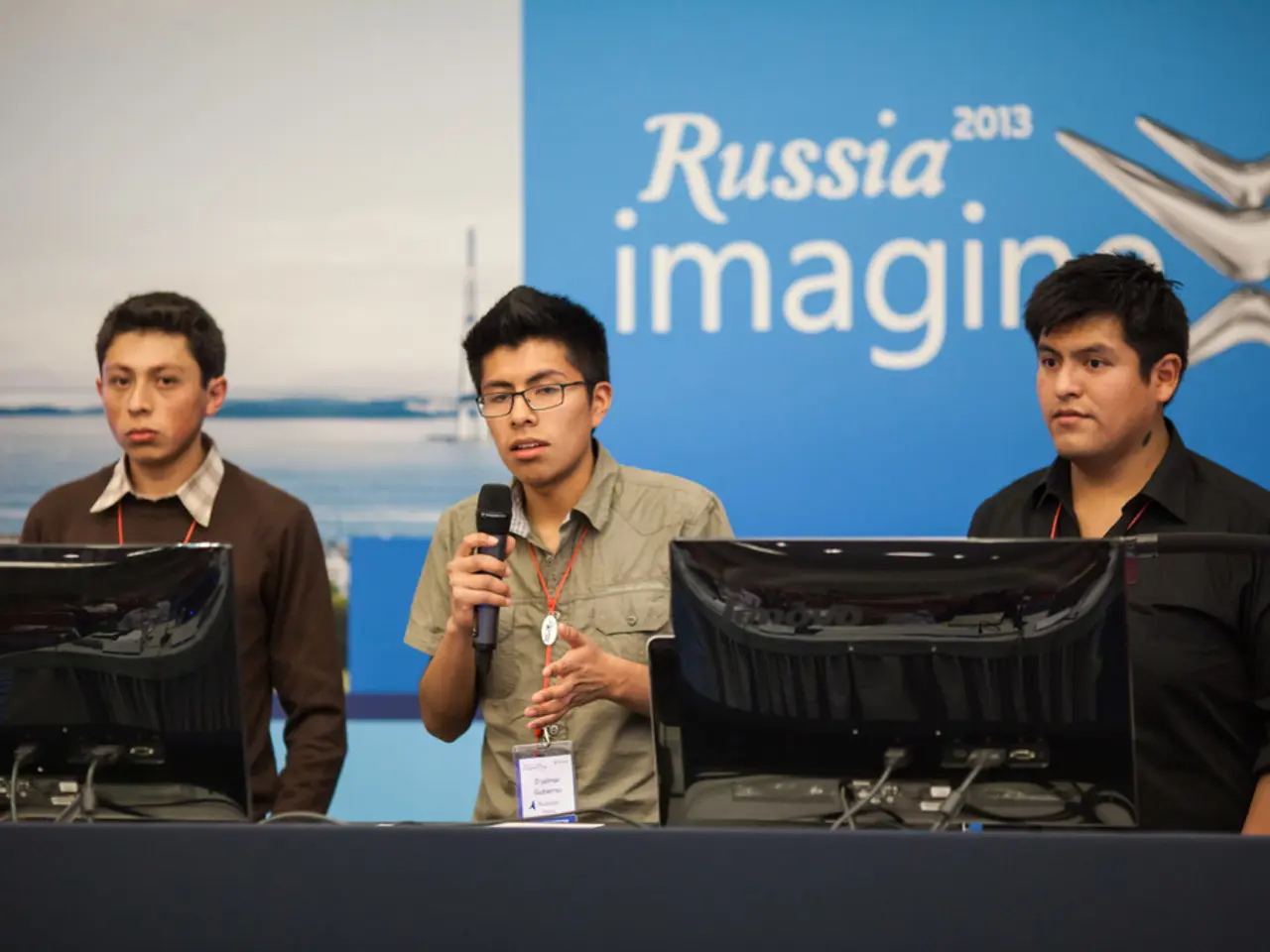"EU stresses the importance of non-coercive boundary adjustments ahead of Trump-Putin diplomatic meetings"
The much-anticipated meeting between U.S. President Donald Trump and Russian President Vladimir Putin on the Ukraine conflict in Anchorage failed to result in a concrete agreement. Although the talks were preliminary and exploratory, Trump expressed hope for future progress and a possible summit involving Ukrainian President Volodymyr Zelenskyy.
Details about what Putin may have offered are not fully clear or publicly confirmed. Observers note that if Putin did propose any concessions, these have not been disclosed yet; further information might emerge after Trump briefs Zelenskyy and NATO. Trump mentioned a possible follow-up meeting between Putin and Zelenskyy as a potential positive step.
Analysts suggest significant steps would be required to stop the conflict, including sanctions and military support for Ukraine if no concessions come forward. Ukraine and its Western allies have pushed back on proposals that they view as ceding too much to Russia.
Meanwhile, in Ukraine's east, Russian troops are slowly advancing, but their summer offensive has so far failed to achieve a major breakthrough. Ukraine says its troops still have a small foothold in Russia's Kursk region a year after its troops crossed the border. Fierce fighting is raging along the front line in eastern and southern Ukraine, where Russian forces hold around a fifth of the country's territory.
The leaders of Britain, France, and the European Commission have pledged to find a "just and lasting peace" in Ukraine and "unwavering support" for Zelenskiy. European officials have presented a counterproposal that includes demands for a ceasefire before any steps are taken and that any territory exchange must be reciprocal, with firm security guarantees. The parties, including Zelenskiy, are reportedly close to a deal, but the details have yet to be announced.
Macron emphasized the need for Ukraine to play a role in any negotiations regarding the conflict in Ukraine. The U.S. administration is considering inviting Zelenskiy to join the U.S. and Russian presidents at their Alaskan meeting. A joint statement from European leaders and the president of the European Commission emphasized the importance of a diplomatic solution that protects Ukraine's and Europe's vital security interests.
The proposed deal between the two leaders could involve "some swapping of territories to the betterment of both" parties. However, Moscow has claimed four Ukrainian regions and the Black Sea peninsula of Crimea, which was annexed in 2014. The deal must be negotiated in the context of a ceasefire or reduction of hostilities, as agreed by all parties.
As of the available information, there is no detailed or finalized "deal" between Trump and Putin regarding Ukraine, only initial talks with some tentative hope for future discussions. With the conflict continuing to rage, the international community remains vigilant and committed to finding a peaceful solution.
- Despite the initial exploratory talks between President Trump and President Putin regarding the Ukraine conflict, details about any potential 'deal' remain unclear and not publicly confirmed, with further information expected after Trump briefs Zelenskyy and NATO.
- Analysts suggest that significant steps such as sanctions and military support for Ukraine might be needed if no concessions are made, while the leaders of Britain, France, and the European Commission have pledged "unwavering support" for Ukraine in their pursuit of a "just and lasting peace."
- The proposed deal between Trump and Putin could involve a 'swapping of territories' to benefit both parties, but this must be negotiated in the context of a ceasefire or reduction of hostilities, and with firm security guarantees, particularly regarding the four Russian regions and the Black Sea peninsula of Crimea, which were annexed in 2014.





